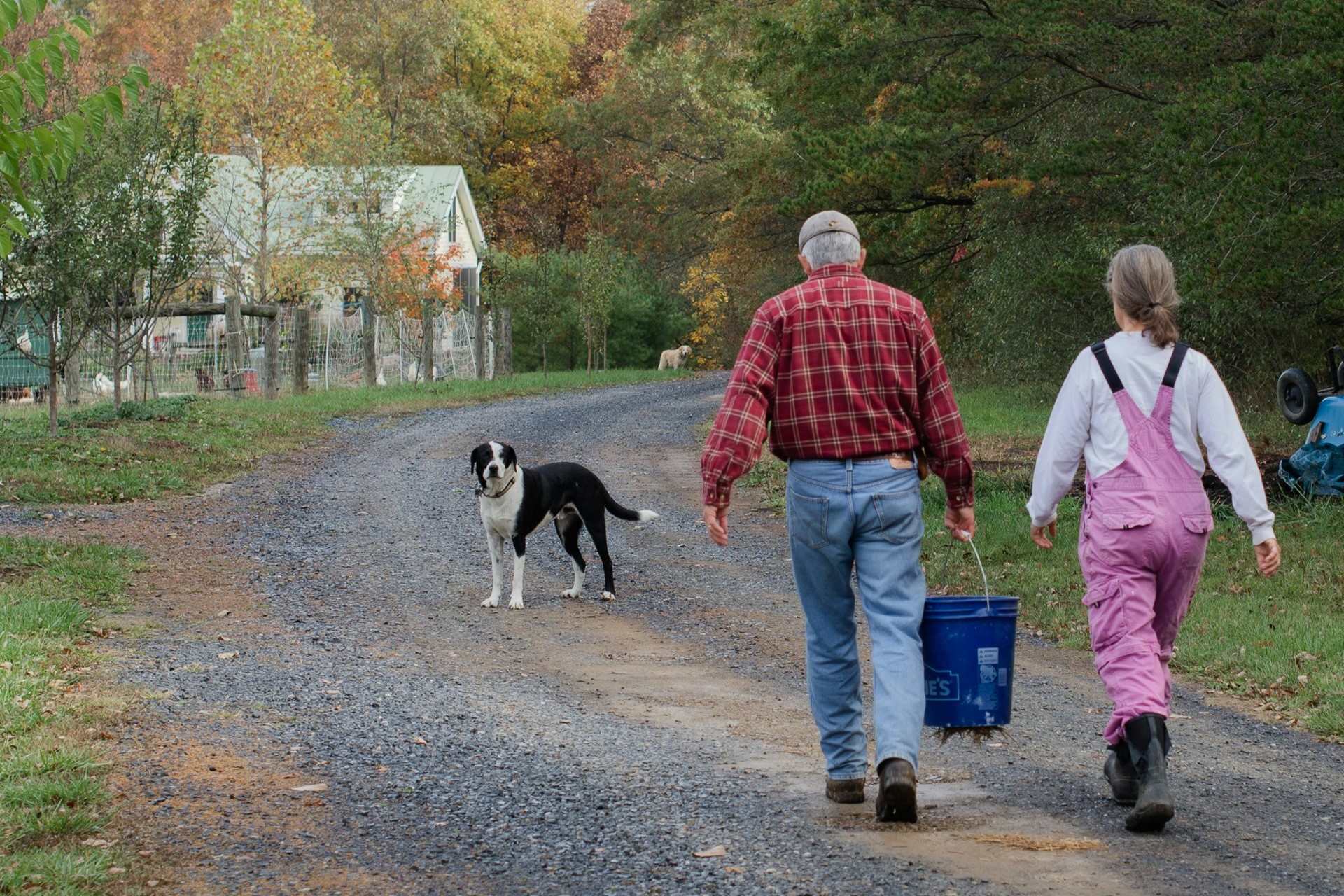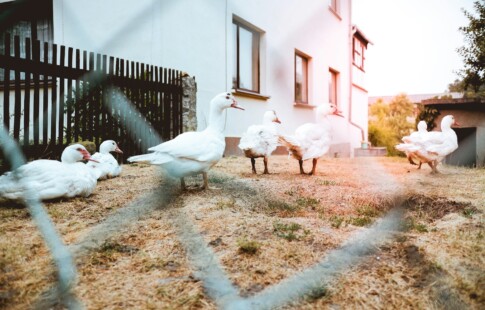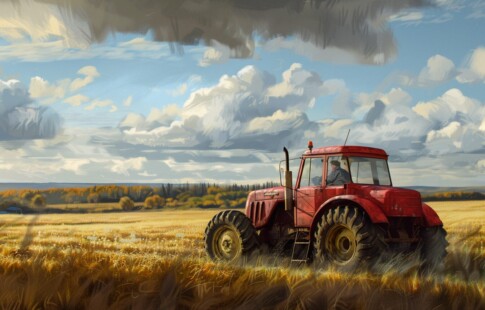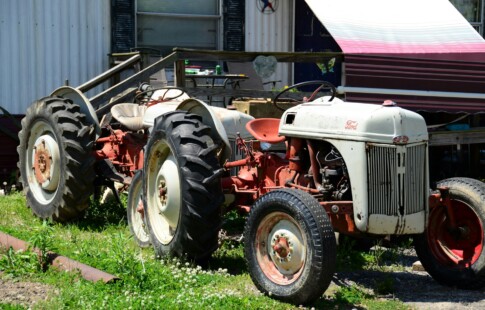
Buying a Hobby Farm: Tips and Things to Consider
We are reader-supported. When you buy through links on our site, we may earn affiliate commission.
Buying a hobby farm combines farming with leisure, appealing to those interested in eco-friendly urban living. It’s a chance to connect with nature, practice sustainability and contribute to environmentally conscious communities.
Understanding Hobby Farms
A hobby farm is a small-scale farm meant for enjoyment rather than income. They’re typically 50 acres or less and the owners usually have other jobs and aren’t focused on self-sufficiency like homesteaders compared to the average farm that usually covers 445 acres and 40.9% of them earn $500,000 or more annually. It’s characterized by its modest size, diverse activities and a focus on pleasure over commercial production.
- Small acreage: Hobby farms are usually compact, making them manageable for individuals or families. For example, a hobby farm might comprise a few acres of gardening and animal-keeping land.
- Diverse crops or livestock: These farms often embrace eco-friendly methods. This could involve practices like composting, using natural fertilizers, employing energy-efficient tools and showcasing a commitment to sustainability in their farming endeavors.
- Sustainable practices: Hobby farmers often embrace eco-friendly methods. This could involve practices like composting, using natural fertilizers or employing energy-efficient tools.
Benefits of Buying a Hobby Farm
Owning a hobby farm offers numerous benefits:
- Close to nature: Experience of the serenity of rural living. For example, waking up to the sounds of birds and enjoying a backyard filled with fresh air.
- Sustainable living: Grown your own veggies and herbs, like tomatoes, peppers and basil, reducing the need for store-bought produce and embracing eco-friendly practices.
- Learning opportunities: Gain hands-on knowledge about agriculture for insurance, learning how to rotate crops or implement composting for healthier soil.
- Health boost: Stay active through farm activities. Simple tasks like digging, planting or caring for animals contribute to regular exercise.
- Community bonding: Share surplus produce with neighbors or collaborate on community projects, creating strong connections and a supportive local network.
- Stress relief: Find solace in the therapeutic aspects of farming. Whether tending to a garden or spending time with animals, the farm environment can be a calming retreat.
Challenges and Considerations
Owning a hobby farm has its challenges. It’s essential to balance your time between farm tasks and other commitments because these farms need at least two full days of work per week and an initial cost for equipment and care.
Beginners might face a learning curve in farming skills. Weather affects crops and animals and understanding local rules is crucial. Considering the physical demands of farm work and finding markers for surplus produce is practical. Being environmentally responsible matters and rural living may impact social connections and daily routines.
Selecting the Right Property
Selecting a property with suitable zoning regulations is vital for successful hobby farming. Zoning rules define what activities are allowed on a property, so choosing a location that permits small-scale farming ensures you can enjoy your hobby without legal concerns. This means you can engage in gardening or keeping a few animals without issues.
Healthy soil is crucial for successful hobby farming. It provides essential nutrients and support for plant growth, influencing crops’ overall health and productivity. Maintaining good soil quality ensures optimal conditions for planting, leading to better yields for vegetables, fruits or flowers, making the hobby farming experience more rewarding.
Determining Land Suitability
Soil testing is vital to assess if the land is suitable for specific crops or livestock in hobby farming. You can conduct a soil test by sending samples to a local agricultural extension office or using DIY kits.
The test reveals soil pH, nutrient levels and texture. Based on the result, you can amend the soil with amendments like lime or compost to create an optimal environment for desired crops. Understanding the soil’s characteristics helps determine which plants or animals thrive, ensuring successful and productive hobby farming.
Why Reliable Water Matters in Hobby Farming
Reliable water ensures crops grow well and produce more. Consistent water keeps animals hydrated and healthy.
It also prevents dehydration in both crops and animals. A dependable water source is crucial for sustaining life on the hobby farm.
Financial Planning for a Hobby Farm
Starting a hobby farm requires careful financial planning. A farm’s average spending is $196,087 which is typically more expensive than a home and is offered by fewer lenders.
A budget is important for success, from land buying to ongoing costs. Here are some key aspects:
- Creating a budget: Start by outlining a budget for your hobby farm. Consider upfront costs, ongoing expenses and potential future investments.
- Land acquisition: Factor in the cost of purchasing land. Prices vary, so research local real estate values to estimate this significant initial expense.
- Infrastructure development: Account for costs related to building essential infrastructure, such as fencing, barns or sheds. Get quotes from contractors to estimate these expenses accurately.
- Equipment costs: Include the cost of necessary equipment like tractors, plows and tools decide whether to buy new or used, keeping in mind maintenance expenses.
- Ongoing expenses: Budget for recurring costs such as seeds, fertilizers, animal feed and utilities. Consider potential veterinary expenses for livestock.
- Emergency fund: Allocate funds for unexpected expenses or emergencies. Having a financial cushion helps manage unforeseen expenses and challenges without compromising the stability of your hobby farm.
- Research and consultation: Seek advice from experienced hobby farmers, agricultural extension offices or financial advisors. Their insights can provide valuable perspectives and help refine your budgeting process.
- Review and adjust: Regularly review your budget and adjust as needed. This ensures you stay financially responsible and can adapt to changes in expenses or income over time.
Government Support for Your Hobby Farm
Explore government programs and grants for sustainable programs and grants for sustainable agriculture and hobby farming. The USDA’s Farm Service Agency Farm Loan Programs are a good choice for financing especially for beginners, women, minorities and Native American farmers.
Check if your farm meets eligibility criteria regarding size, sustainability practices or specific crops and livestock. Applying involves sharing details about your farm and sustainability plans.
Connect with local agricultural offices or online resources for guidance. Seek advice from experienced farmers and stay updated on new opportunities or changes to existing programs for ongoing support in your hobby farming journey.
Learning and Connecting in Hobby Farming
Continuous learning and networking are vital in hobby farming. Ongoing education improves your farming skills and keeps you updated on industry trends.
Networking lets you connect with other hobby farmers, share experiences and gain insights. In Australia, there are over 60,000 people who run small hobby farms, which is around 20% of their agricultural land.
Find workshops, webinars and programs through local organizations, agricultural offices and online platforms to support your journey, stay informed and build connections to contribute to a vibrant hobby farming community and enhance your farming practices.
Owning a Hobby Farm
Buying a hobby farm combines farming with leisure, offering a unique experience. Planning, budgeting and staying informed about resources can fulfill the hobby farming journey, offering a peaceful rural lifestyle and the satisfaction of cultivating your land.
Share on
Like what you read? Join other Environment.co readers!
Get the latest updates on our planet by subscribing to the Environment.co newsletter!
About the author
Jane Marsh
Starting from an early age, Jane Marsh loved all animals and became a budding environmentalist. Now, Jane works as the Editor-in-Chief of Environment.co where she covers topics related to climate policy, renewable energy, the food industry, and more.





